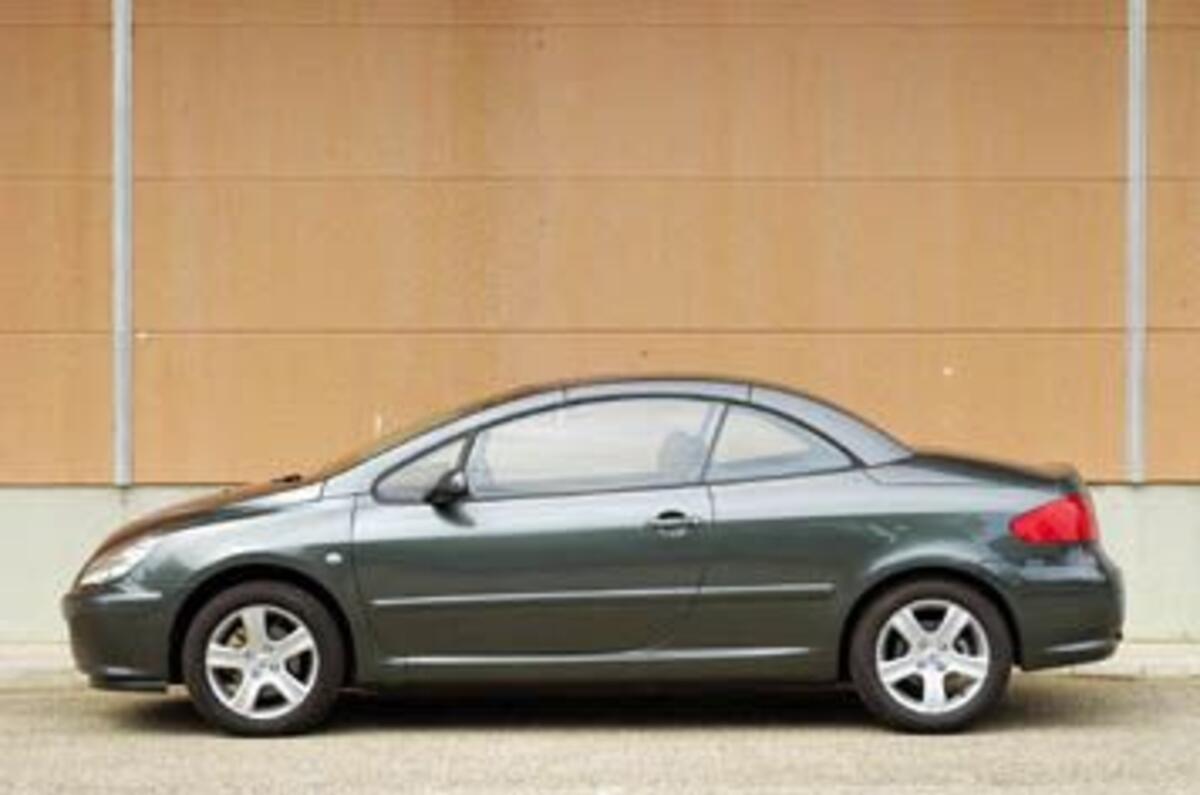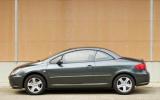There is one overwhelming reason why this new Peugeot 307CC will enjoy a sales bonanza and it has nothing to do with whether it’s a decent car or not. In fact, the secret of its forthcoming success lies not with the car, but with the 8000 people who will buy one in Britain alone next year. And it is this: none of them wants to drive a convertible.
What they want is to be seen in a convertible, to bathe in what they see as the reflected kudos of being a wind-in-your-hair, flies-in-your-teeth, out-there convertible kind of guy or girl. And the moment they’re out of sight of their mates they want a nice, quiet, comfy car like the rest of us. This is a truth uncovered by the 307’s older but smaller sister, the 206CC, and now you know too, you won’t be surprised to discover it’s Britain’s best-selling convertible.
It’s all down to that steel roof. Not for the open-air antics available when it’s folded, but for the safety, security and refinement on offer when it’s not.
So much for the theory. The reality is that the 307CC scarcely puts a foot wrong while, at the same time, fails to strike a single spark into the heart of the enthusiast driver.
Two versions are available. Both use Peugeot’s familiar 2.0-litre twin-cam engine, which can be specified in either £18,300, 136bhp guise, or with the 180bhp engine from the 206 GTi 180 at a price of £20,900. A 1.6-litre is available in Europe, but it is only a matter of time before both it and a still-to-be-announced 2.0-litre diesel version are also made available to UK buyers.
Heading out in the 307CC 180, two things strike you almost at once. First of all, the process that turned this car from hatchback to drop-top has been very thoroughly executed. The next thing you notice is that its performance doesn’t match the promise of its lofty engine output. Peugeot says it needs a full 10sec to hit 62mph from rest, and I believe that, too.
The reason is its weight. At 1490kg the 307CC is a colossal 210kg heavier than an equivalent 307 hatch. Even though Peugeot claims a top speed of 140mph, it is not enough to lift the 307CC’s real-world performance above the pedestrian. Then again, Peugeot is at pains to point out that this is not intended to be a sporting car.
Like the 307 upon which it is based, it rides exceptionally well and handles with aplomb, even if it doesn’t spark enthusiasm. It’s best at medium effort, where the fluent steering, fine body control and meaty brakes can be enjoyed without entering the zone where its weight makes the car scrubby and a little imprecise.
You’ll also enjoy exceptional roof-down refinement, a spacious cabin, and the fact that two children or average-sized adults can squeeze into the rear without feeling they’ve received a custodial sentence. There is a disappointing level of wind noise with the roof up but at the legal limit it’s quiet enough not to annoy.
The fact that the 307CC is dynamically indifferent will mean nothing to those who buy it compared to the fact that, once they’ve shown off to their mates in it, they can drive around the corner and put a nice steel roof over their heads in 25sec flat. If your speed is under 6mph, you don’t even have to stop. Throw in room for four and a decent boot – even with the roof folded – and the winning formula is complete.


















Join the debate
Add your comment
A brief review on "Peugeot
A brief review on "Peugeot 307" can help us to purchase an amazing car which has awesome features auto installed. This is true domain authority matters a lot, I hope that post Peugeot 307 will get the positive response from search engines.